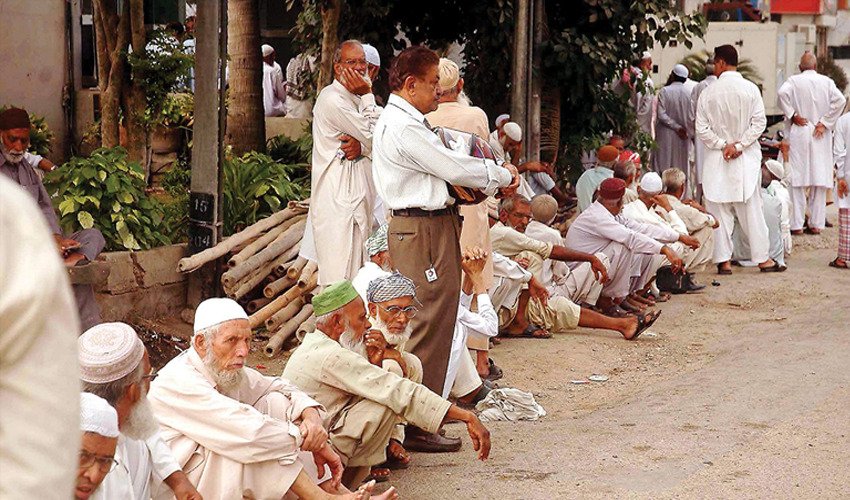Public sector employment remains an attraction for two important reasons, job security and a guaranteed pension. Unlike other countries, Pakistan has not reformed its public sector pension system and maintains a pay–as–you–go defined benefits type pension system which has resulted in a build-up of unfunded liability for the government. Pakistan practices a legacy pension system where pensioners are paid directly from the revenues as part of the current expenditures. This practice is inherently unsustainable as pension expenditure growing at around 25%, cannot be provided from an economy growing at a significantly lower rate.
The pension burden is therefore bound to grow, doubling every four years. It is estimated by 2050, pensions will account for 56% of current expenditure. The government will not have the funds for pension expenditure after 8-10 years.
The pension system in Pakistan is undergoing a major reform to cope with the increasing fiscal burden and to ensure the sustainability and adequacy of pension benefits. The government has initiated several measures to revise the pension rules and rates, such as introducing a contributory pension scheme, increasing the minimum pension, and linking the pension increase with inflation.
The reform seeks to integrate pension regulations and orders for various kinds of pensioners, including as civil, military, and judicial, as well as to streamline the process of authorizing and paying benefits. The Pay and Pension Commission, which is in charge of examining and recommending pension policies and practices in Pakistan, is expected to guide the reform in the future.
In addition to existing measures, the government has announced significant pension reforms for 2023, including the establishment of the Pension Fund, the elimination of multiple pensions for officers of grade 17 and higher, and the implementation of penalties for early retirement. The Pension Fund will be a separate body that will administer the pension contributions and payments of government employees, and it will be governed by the Finance Division’s laws and regulations.
Multiple pensions will be eliminated, preventing retired officers from obtaining more than one pension from different sources and ensuring a fair and equitable allocation of pension payments. The penalty for early retirement will deter government employees from taking voluntary retirement before the age of superannuation, reducing the government’s pension responsibilities. These reforms are designed to improve the efficiency and efficacy of Pakistan’s pension system.
Pension policy improvements in Pakistan 2023 are a good step toward assuring the pension system’s sustainability and equity. The reforms seek to lessen the burden of the pension budget, which has grown by 500% in the last 12 years, as well as to give a fair and adequate pension to all retired government employees.
These improvements are designed to enhance the government’s fiscal situation as well as the wellbeing of seniors and their families. These improvements are expected to improve Pakistan’s pension system and make it more effective, equitable, and inexpensive. They will also assist the government in allocating additional funds for development and social welfare projects.
